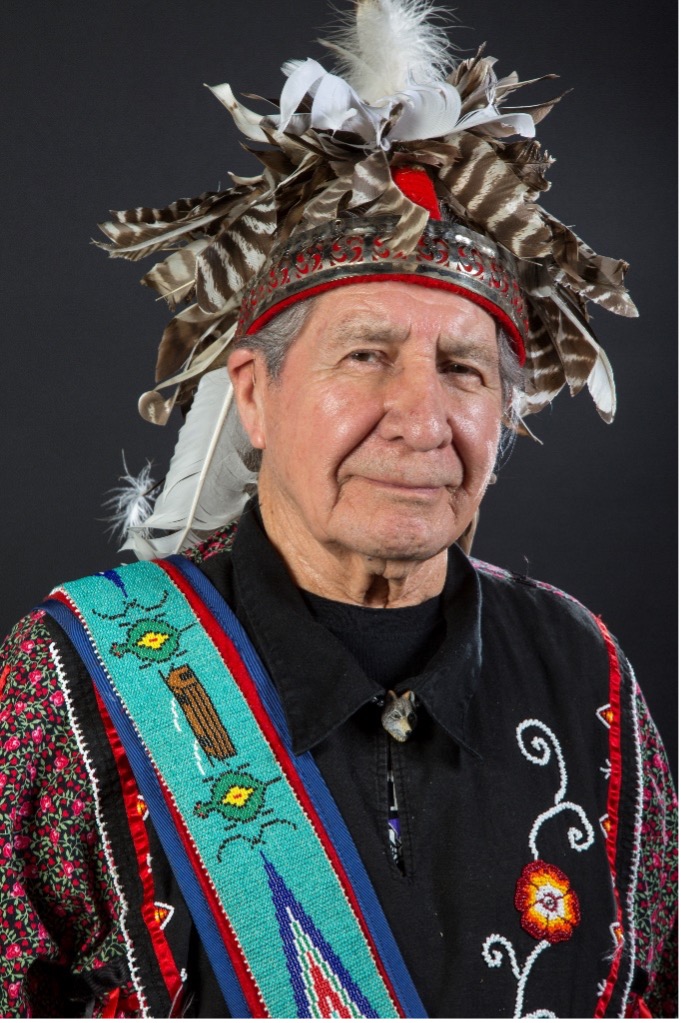The ice caps were once icebergs. The icebergs were formerly glaciers. Climate change has proven to be a prevalent issue worldwide, and Faithkeeper Oren Lyons of the Onondaga Nation of the Haudenosaunee is an advocate for proving the importance of taking care of the Earth.
Lyons will be presenting “Nature is in Charge of All Life” at 2 p.m. Tuesday, July 5, in the Hall of Philosophy for the Interfaith Lecture Series theme “Reconnecting with the Natural World,” also as part of the first-ever Haudenosaunee Confederacy Day at Chautauqua.
“My lecture is a warning,” Lyons said. “I hope that it alerts people to the reality that we’re looking at, that their powers are not addressing. (The Biden) administration is the first one that has really spoken directly to the issue.”

The six nations of the Iroquois Confederacy make up the Haudenosaunee, where Lyons and other chiefs “have seen a lot” and feel “the deterioration of the Earth is pretty obvious.”
Shortly before the American Revolutionary War, the Founding Fathers met with the Haudenosaunee to discuss what the colonies needed to do to become a separate nation from Britain.
“(The Haudenosaunee) advised (the Americans) to make a union like ours and have peace and prosperity, and work together instead of fighting each other,” Lyons said. “Little is known by most of (Millenials and Generation Z regarding the) history of the United States, how involved the six nations were in the development of this country all together.”
Lyons said Indigenous history is almost fully erased from K-12 schools and college curriculums. He was a professor at the University at Buffalo for 37 years and saw that erasure in the history curriculum.
“I’m going to try to enlarge people’s understanding of the history that has almost been erased. … (Curriculums) don’t talk about us,” Lyons said. “I’m going to try to enlighten people on the principles that we need if we’re going to survive as a species. We’re in serious trouble.”
Embracing a large, life-long perspective, Lyons said his concern for future generations stems from the ongoing lack of resources.
“My concern is a point of no return. When is it going to be too late to do anything to stop the deterioration?” Lyons said “If there is a point of no return, which I believe there is, once you pass that point, there’s nothing you can do. It will be down from there on into an abyss, and we’re headed in that direction right now.”
John Mohawk, the late historian from Seneca Nation, was a friend of Lyons’ and made an important observation: “Well, as far as I can see, the human population is still an experiment,” Mohawk said. “So it looks like we’re failing the experiment, but it’s not too late.”
In 2000, Lyons spoke at the United Nations to deliver a similar message: “The ice is melting.” As a faithkeeper of the Haudenosaunee people, he noted that they are all given a responsibility for the Earth.
“When we first accepted this responsibility, (we were told), ‘You are now in charge of life,’ ” Lyons said. “That includes everything that’s alive. The flowers, the trees, the animals, all life, that’s your responsibility, not just people. People are a part of all that, but responsible for the whole.”
Lyons said overpopulation is a very serious factor of why the Earth is heating up so rapidly.
“We’re like the Titanic as it was heading towards the iceberg, and the captain, crew and the whole ship was trying their very best to turn the Titanic,” he said. “It was so ponderous and so huge, and they didn’t make it. They didn’t make that turn, and I see the human population in that same context.”




